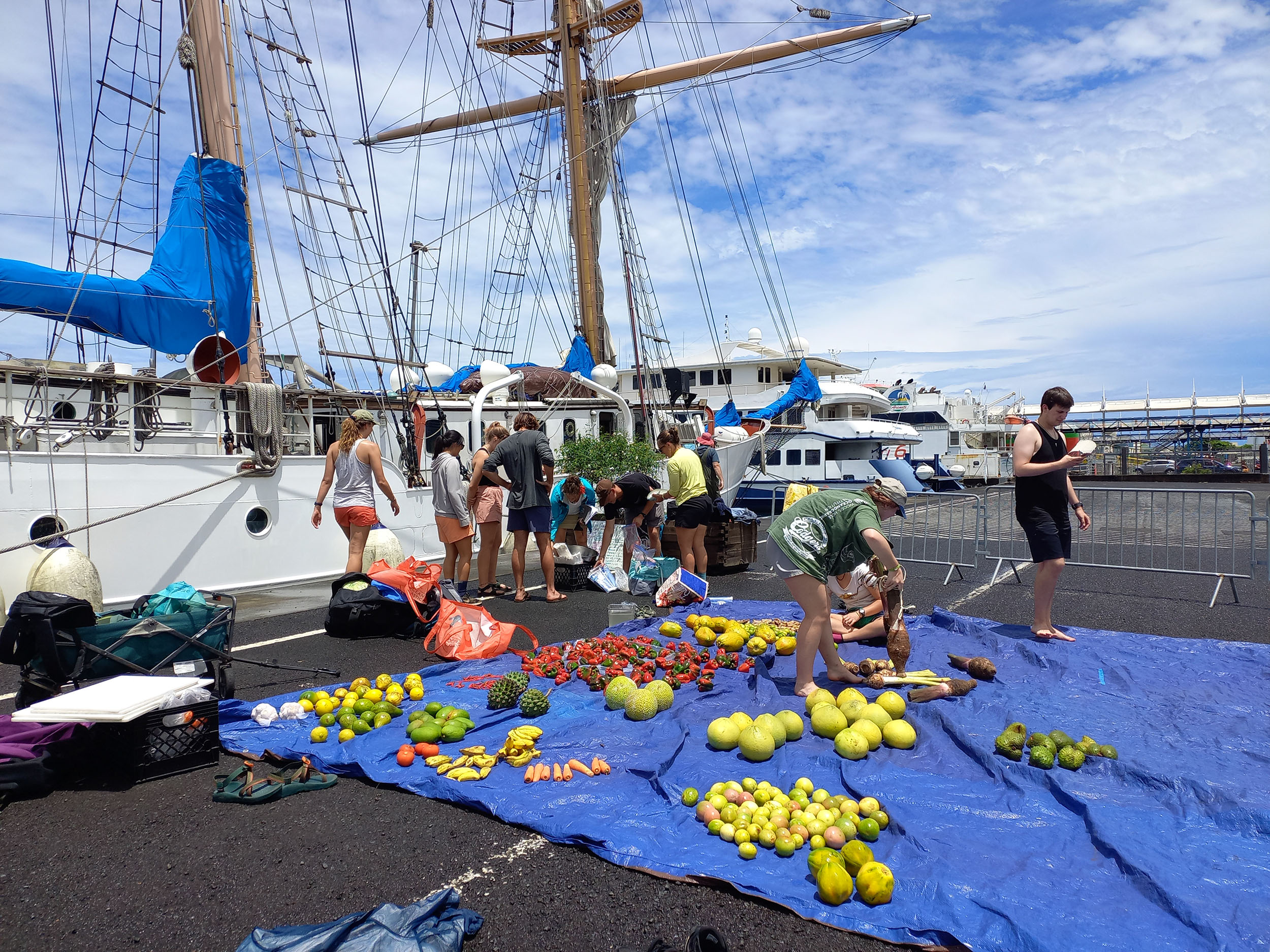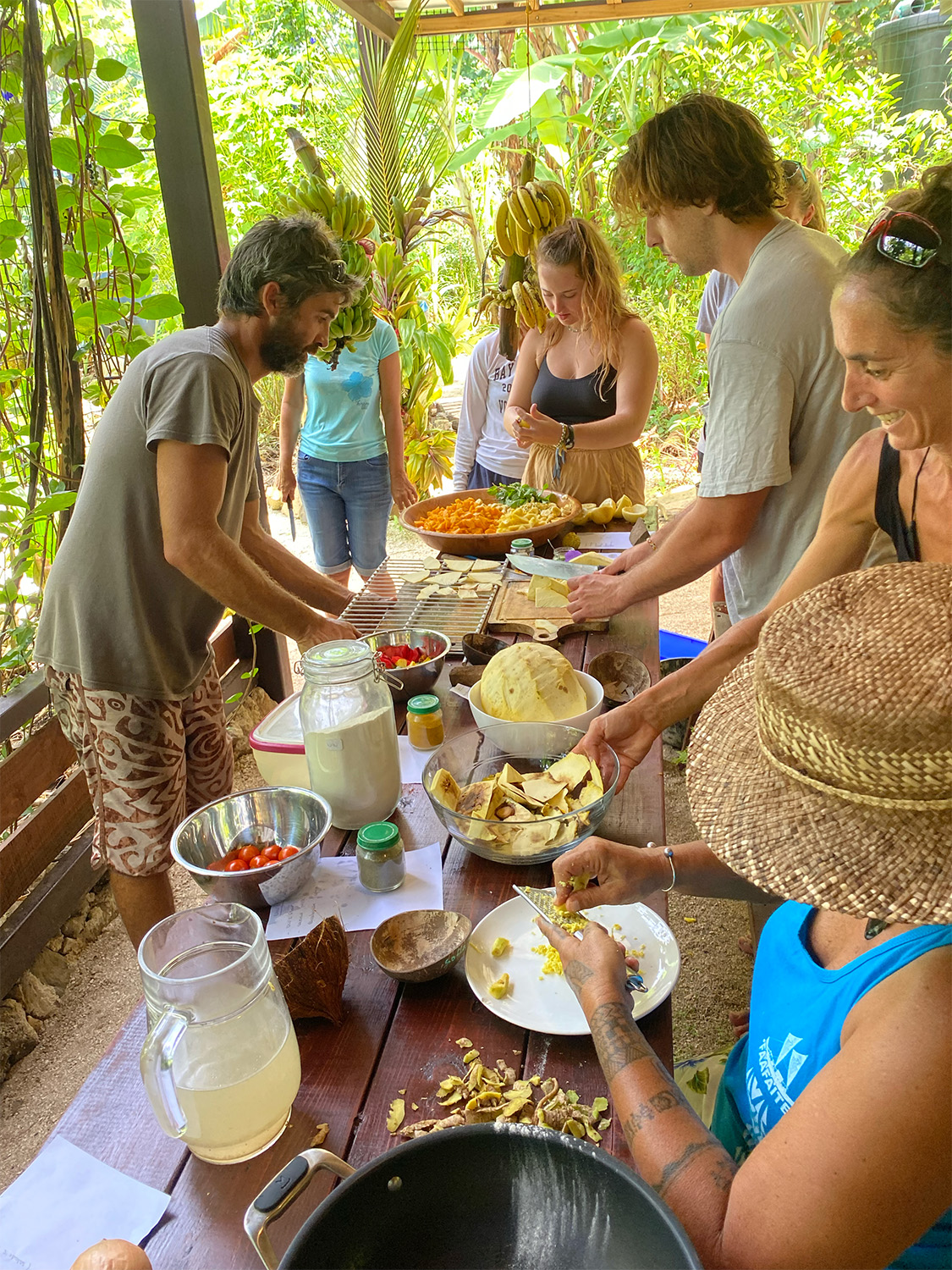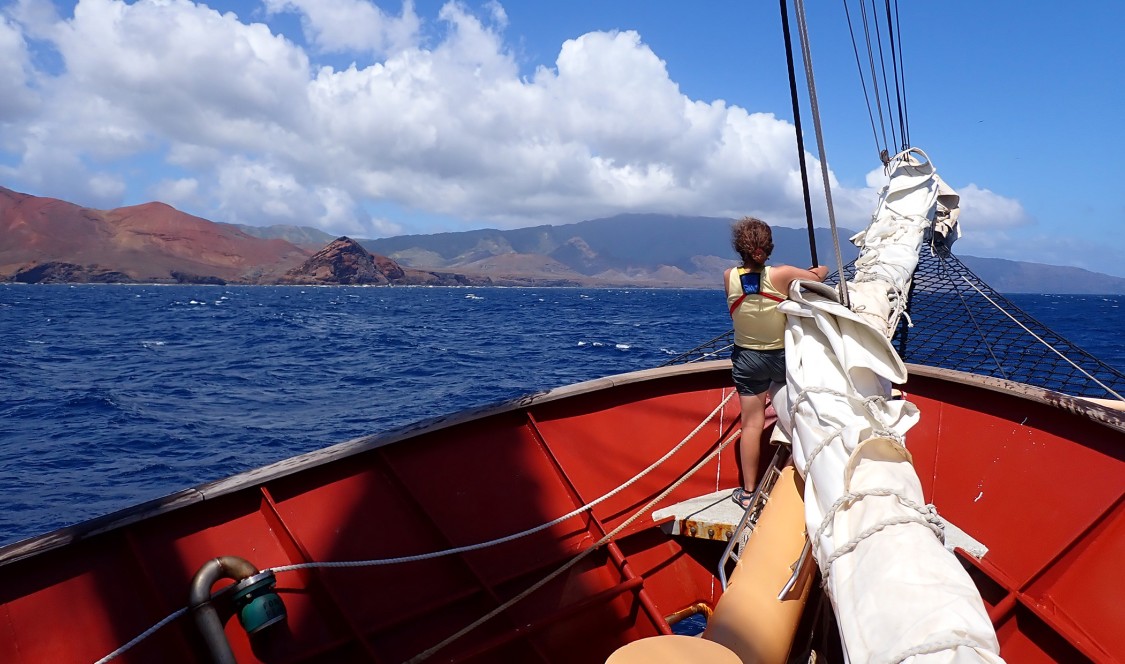Kate Roney ’24 lived and worked aboard a research vessel sailing the South Pacific to log the latest leg of her voyage toward fulfilling a passion for climate and environmental studies.
Roney spent three months recently in the highly selective study abroad program, “Sustainability in Polynesian Island Cultures and Ecosystems,” through the Sea Education Association, which included four weeks aboard the SSV Robert C. Seamans.

As they snorkeled through sparkling blue lagoons, studied plankton, and met with locals throughout French Polynesia, Roney and her student-shipmates learned about the complex environmental challenges faced by remote Pacific Islanders and sustainable solutions for island cultures and ocean ecosystems.
“This was a transformative experience,” said Roney, who is an Environment, Economics and Politics (EEP) major at Claremont McKenna College. “This was such a unique way to understand a culture—both onboard and in the places we visited. And it was even more unique this year, as it was the first time food was incorporated into the program. We got to understand the culture through food and develop a sense of place. We learned about the history of colonial influence on food, and how now 90% or more of the food coming into French Polynesia is imported, and how that’s changed the relationship to food there.”
Roney found herself aboard the 134-foot vessel after she discovered the SEA program scrolling a list of study abroad opportunities, while taking a break from finals in the Claremont Colleges library basement. “As soon as I saw it, something clicked for me, and I knew this was a program I needed to do,” she said.
Roney developed her sea legs in high school, sailing for 10 days with Outward Bound to the Bahamas. “It was an incredible experience, although it was rough at times,” she recalled. “It gave me a taste for doing things to challenge myself. I knew I wanted to do something similar again, something I’d never be able to recreate on my own. I really wanted that novelty of experience.”
Some of Roney’s 25 crewmates had never even seen the Pacific Ocean before, while others had extensive experience working on boats. But most of them shared a background and interest in the environment. Roney had developed her own interest at age 17 as co-director of Schools for Climate Action in her hometown of Santa Rosa, Calif.
During their voyage, she and her fellow student sailors “were really interested in knowing how climate change was perceived within French Polynesia and Tahiti,” she said. “I had thought about climate change theoretically in classes, about how these smaller countries bear the burden of climate change caused by larger countries. As we traveled through the islands, we learned about these issues by studying reef ecology and greater ocean ecology. And then we did oceanographic research on board, tracking plankton, and learning about agricultural runoff.”
In addition, Roney and her crewmates met with local leaders to discuss environmental issues and “how they navigate the French colonial influence, how it impacts and limits the decisions they can make,” she said.

Upon her return to CMC’s campus, Roney quickly discovered that what she learned during her study abroad experience was directly applicable in the classroom as an EEP major. “I’m taking ‘Global Politics of Food and Agriculture,’ which fits incredibly well,” she said. “In addition, I’m taking ‘Economic Development’ and ‘Soils and Society.’ What I’m learning can be applied to island ecosystems and biogeography. Sometimes a slide will pop up in class, and I’ll look at it, and think, ‘Oh, we studied this last semester during oceanography.’ It’s exciting to see it all tied together.”
Roney was drawn to CMC for just these types of experiences. “As I toured campus, I heard one of the tour guides discussing their EEP major. Environment, economics and politics are the three categories that I was most interested in. At other colleges I would have had to double or triple major. I loved the fact that the EEP major at CMC covered all of those areas and would give me a good baseline, no matter what I wanted to do after I graduated. I also knew I wanted to come to CMC because the College encourages a lot of discussions with people who have different beliefs.”
Before deciding to come to CMC, Roney discovered she’d won a Frank Seaver Leadership Scholarship, which is awarded to CMC students who demonstrate exceptional promise to become leaders intent on making a positive impact in the world.
“When I found out I’d won, everything changed. Essentially the trajectory of my life changed, because otherwise I wouldn’t have been able to attend CMC,” she said. “I just feel very, very grateful.”
Roney is currently honing her nonprofit consulting skills working with SOURCE at CMC and intends to continue “exploring the connection between climate and agriculture.”
As she forecasts her post-CMC future, she said, “Going forward, I might want to take a more policy-based route, and start looking into policy research because I think that is one of the best ways to create immediate and lasting action. There are so many exciting opportunities, especially in climate action, and it’s a rapidly growing field. I can’t exactly say where I’ll be, but I’m excited to keep figuring it out!”
The Center for Global Education manages a portfolio of academic programs and offers helpful resources for CMC students interested in world exploration.

